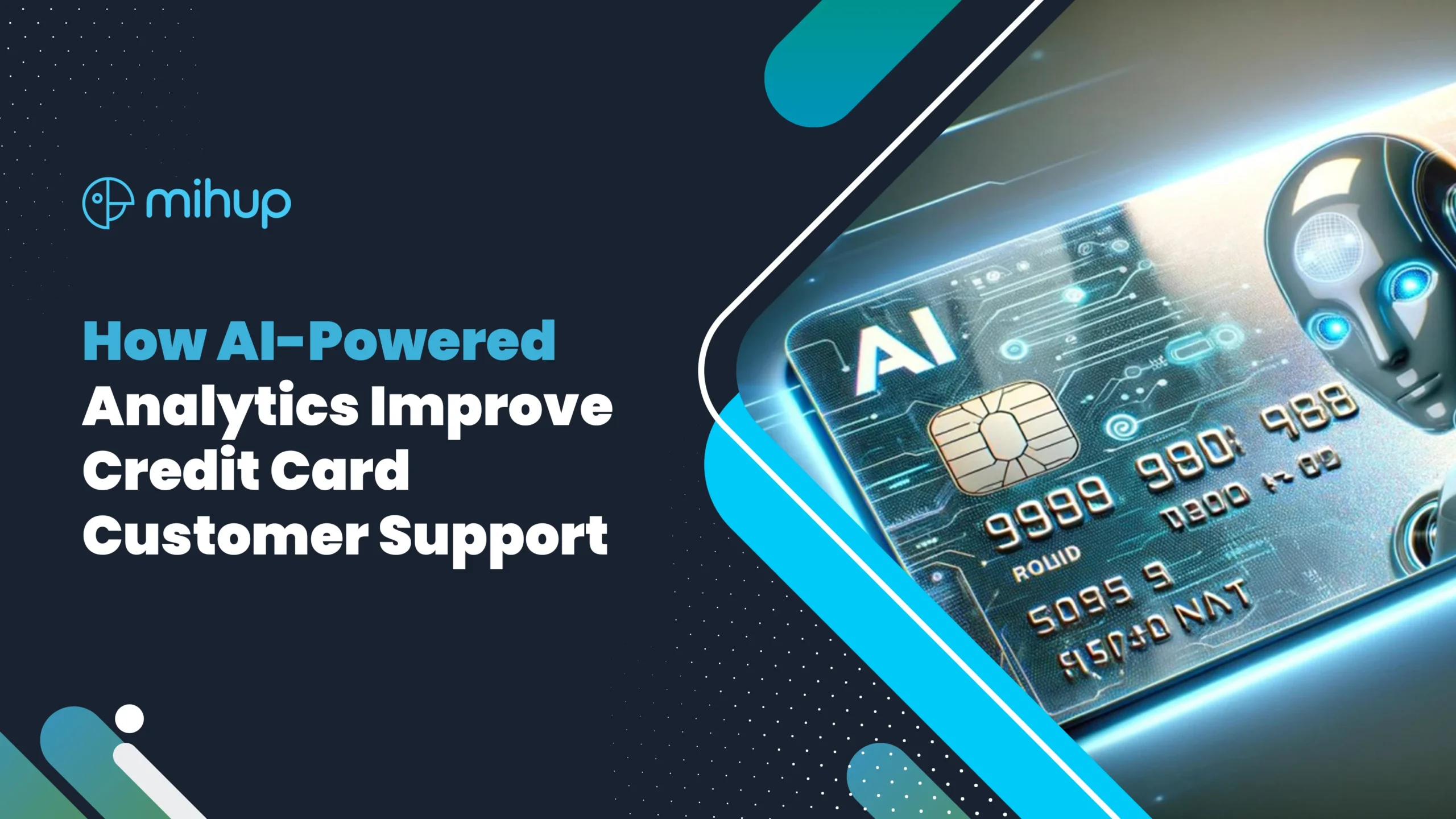Any business head, regardless of any industry will tell you that providing an amazing customer experience is not a choice but rather a necessity. A few studies suggest that 42% of B2C customers showed increased interest in purchasing after having good customer support. Similarly, in the credit card industry’s landscape, exceptional customer support plays the most important role in maintaining clients and creating brand loyalty. To this end, financial institutions are leveraging AI-powered analytics to enhance their customer support systems. AI in customer service is transforming how credit card companies address customer needs by streamlining operations and delivering personalized experiences.
This article explains how AI analytics tools enhance credit card customer support, a focus placed on the applications in credit card call centers and beyond.
The Role of AI in Customer Service
By enabling automation and delivering actionable insights AI is transforming the customer support system. This is the reason why AI in the credit card industry is particularly impactful, as it can process volumes of calls and chats of customer interaction data, also reducing response time and improving satisfaction levels. A report by McKinsey says that the potential of AI to reduce customer service costs by up to 30% while improving response times by 50%. Additionally, a survey by Gartner estimates that 70% of organizations will implement AI-powered chatbots for customer service by 2025. These tools allow companies to shift from reactive support models to proactive strategies, creating a more seamless customer experience.
Benefits of AI-Powered Analytics for Credit Card Support
1. Enhanced Customer Insights
AI-powered analytics tools not only analyze customer interactions, customer emotions, and feedback to provide deeper insights into consumer behavior but also these insights help credit card providers in:
- Identifying trends, such as peak inquiry times, to optimize resource allocation.
- Understanding customer preferences, so that credit card services can be offered accordingly.
By having these insights, companies can create services that meet the requirements of customers, thereby increasing loyalty.
2. Personalized Customer Experiences
AI systems use historical data to analyze the customer’s requirements and eventually begin to personalize interactions. For instance, if the customer’s account of credit card rewards is repeatedly requested, the system could send an update about benefits or possibly even reward points redemption.
Accenture conducted a study and found that 80% of customers are more likely to interact with a brand that leverages AI for offering personalization. Personalization not only solves issues faster but also forms stronger bonds with the customer.
3. Efficient Call Center Operations
In credit card call centers, AI does routine tasks like answering FAQs or account details verification so human agents may dwell on complex and emotionally sensitive issues.
Research shows that AI chatbots can handle up to 80% of routine inquiries, reducing wait times and operational costs significantly. Moreover, by analyzing call center interactions, AI can highlight training needs for agents, ensuring consistent quality in customer service.
How AI is Used in Credit Card Customer Support with Mihup.ai
AI-powered analytics tools have a wide array of applications in the credit card industry, transforming customer support and back-end operations.
Compliance Monitoring
The credit card business must always meet compliance standards. AI-powered compliance monitoring tools, such as Mihup Interaction Analytics, track customer service interactions in real-time to:
- Identify potential breaches of regulatory standards concerning privacy or communicating terms inaccurately.
- Validates whether agents adhere to mandatory disclosures and approved scripts.
- Restricted access to sensitive customer data PII (redacted in recordings) to unwanted access.
By automating such processes, Mihup not only mitigates compliance risks but also ensures service quality through consistency. The proactive approach towards compliance increases customer trust and reduces the financial implications in case of non-compliance in financially accountable matters.
Predictive Analytics
Mihup Interaction Analytics AI utilizes historical customer data and offers predictive insights to anticipate and prepare for the needs of their customers. Example:
- After the introduction of a new credit card feature, the system can forecast an increase in inquiries related to activation or terms, enabling companies to deploy their resources effectively.
- It can analyze past interactions and identify trends, including frequent inquiries regarding possible billing errors. These can be proactively addressed through educational resources or system updates.
This strategy will ensure faster resolutions while improving customer satisfaction as concerns are addressed before they go any further.
Agent Assistance and Training
Mihup Interaction Analytics has also contributed significantly to agent empowerment and agent training through:
- Analyzing 100% of customer interactions, specific opportunities for improvement, such as script adherence, language consistency, or tone management.
- Offering actionable feedback and tailored training modules to address gaps in agent performance.
- Flagging compliance or behavioral deviations in real-time to allow supervisors to intervene and correct the issue promptly.
This data-driven approach increases the effectiveness of agents while enabling them to render more empathetic, consistent, and high-quality service.
Final thoughts
Credit card customer support is transformed as companies relate to their clients through AI-powered analytics. AI analytics tools transform the way companies can relate to their clients, from providing actionable insights and personalized experiences to ensuring compliance and operational efficiency.
As the credit card industry evolves, embracing AI will be essential for meeting customer expectations and staying competitive. By leveraging AI in customer service, companies can foster trust, drive loyalty, and achieve sustainable growth in a dynamic market landscape.





